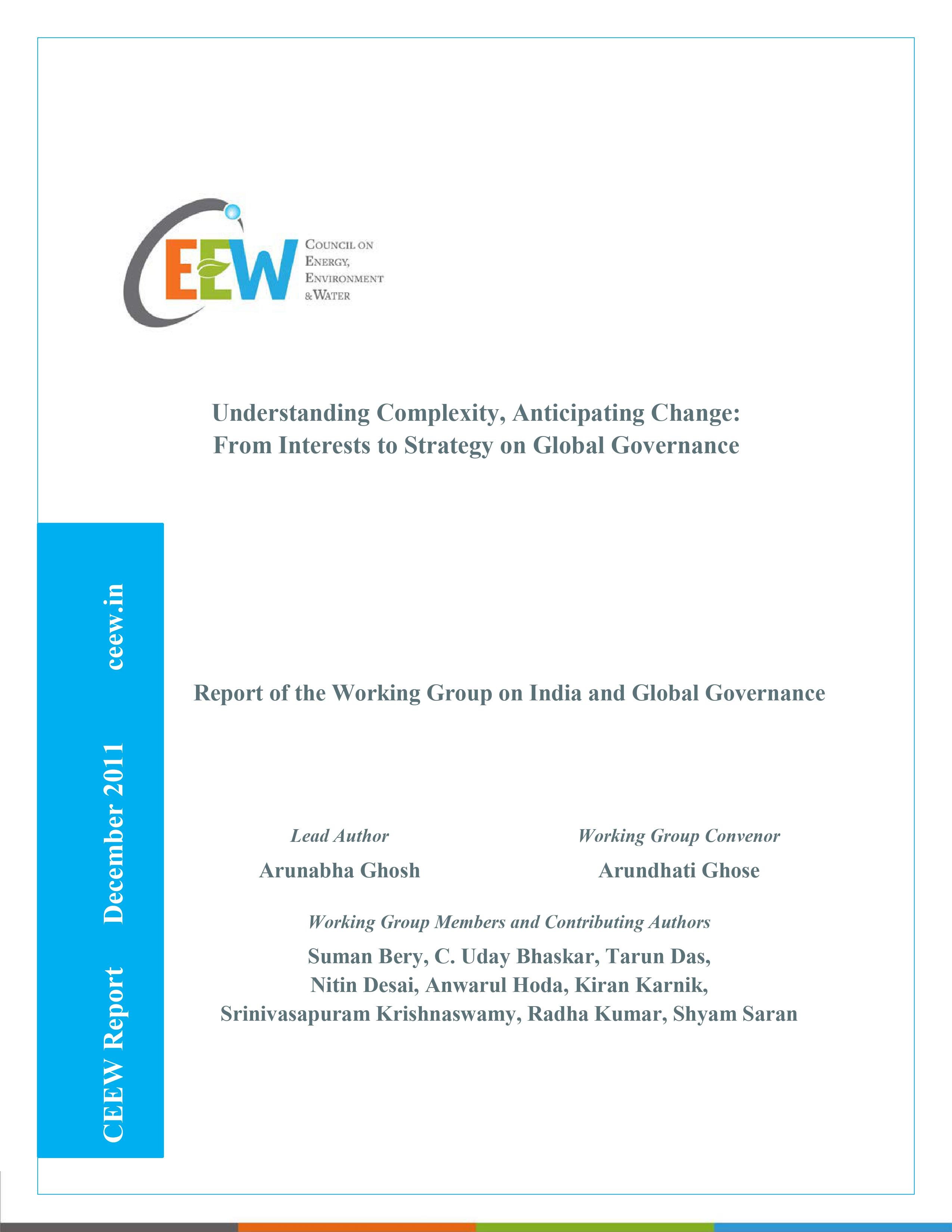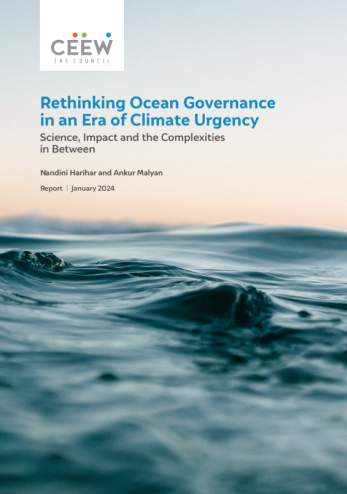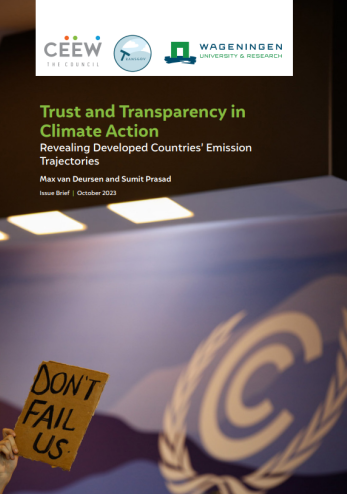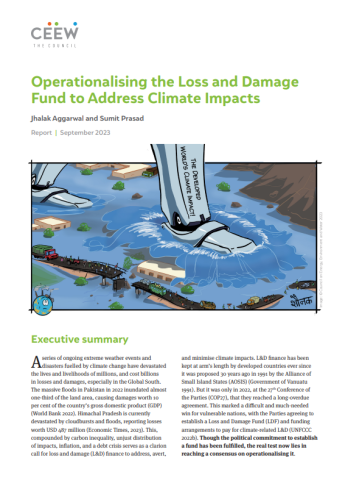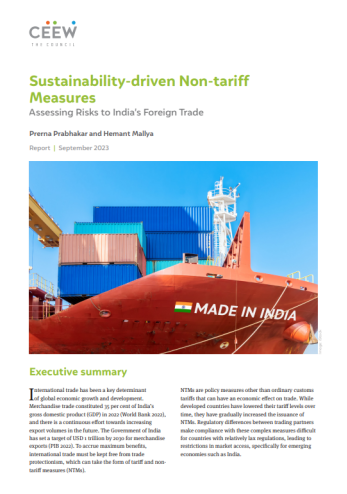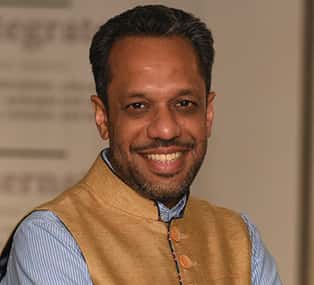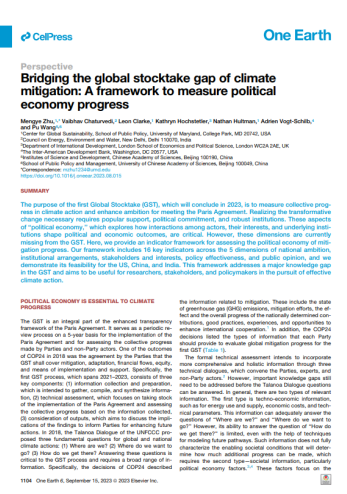Report
Understanding Complexity, Anticipating Change
From Interests to Strategy on Global Governance
Arunabha Ghosh, Arundhati Ghose, Suman Bery, C. Uday Bhaskar, Tarun Das, Nitin Desai, Anwarul Hoda, Kiran Karnik, Srinivasapuram Krishnaswamy, Radha Kumar, Shyam Saran
December 2011 | International Cooperation
Suggested Citation: Ghosh, Arunabha, Arundhati Ghose, Suman Bery, C. Uday Bhaskar, Tarun Das, Nitin Desai, Anwarul Hoda, Kiran Karnik, Srinivasapuram Krishnaswamy, Radha Kumar, and Shyam Saran. 2011. Understanding Complexity, Anticipating Change: From Interests to Strategy on Global Governance. New Delhi: Council on Energy, Environment and Water.
Overview
The report is a product of several rounds of discussions of a working group on India and global governance. It explores a complex landscape of global governance, shifting rules and norms, the design of international institutions, overlapping (and, at times, contradicting) regimes and mandates, and the influence of emerging networks (formal and informal). The thematic areas covered include money, finance and investment; international trade; nuclear non-proliferation; energy and climate change; oceans; outer space; and peace and security. It argues that India (its policymakers and stakeholders in wider society) should understand the complexity and anticipate changes and transitions in global governance.
Key Highlights
- The aim of global governance is to manage the interactions between various actors at the global level, even though the international system is characterised by the absence of a world government.
- Global governance is not restricted to foreign policy. It is a subset of a country’s foreign policy, offering one means to safeguard national interest in the international arena.
- India’s position in the G20 gives it an insider’s view of the discussions that are likely to reshape global economic and financial governance in the 21st century.
- In the mid-1980s when the Uruguay Round was launched, India was a prominent member of a group, with Australia, Japan, and New Zealand being others, which sought to make it harder to create customs unions and free trade areas (FTAs).
- India soon joined the worldwide move towards FTAs with a larger number of countries: with ASEAN, Japan, Korea, Malaysia, Singapore, and Thailand, several African and Latin American countries.
- The international discourse on global governance, non-proliferation, relating specifically to the proliferation of nuclear weapons, equipment, and technology, was seen as an issue on which India’s position has been categorised as that of an outlier.
- India was not a member of most of the energy-specific regional organisations and the scope of multilateral institutions in governing energy was limited.
- It is important for India to urge the international community at the UN and other forums to codify the limits on the rights of nations to conduct military activities and hydrographic surveys in the maritime zones of other coastal states.
- India has been a member of the UN Peacebuilding Commission (PBC) since its inception and has been an active participant in its operations in Africa as well as its discussions on doctrine and approach.
- India preferred governance arrangements and rules that offered it flexibility but also kept its opponents off balance.
- Though India modified its position to accept Responsibility to Protect (R2P) in cases of mass violation or genocide, the government was uncomfortable with the use of R2P in military support of the Libyan opposition, and abstained from the UNSC vote on Syria.
Key Recommendations
- Break the silos in which discussions on various issues occur within the government so that the connections between different issues could be better understood.
- Create an expert advisory group within the National Security Council, whose task would be to regularly monitor changes occurring in different issues and notify the NSC about the implications for India’s political positions, commercial interest or strategic objectives in other areas.
- Institutionalise outreach to the Ministry of External Affairs by conducting regular training workshops with mid-level diplomats to create a new generation of a globally aware and strategically focused cadre of officers.
- Develop informed positions on how regional, plurilateral, global and other forms of variable geometry in the governance structures impact India’s interest.
- Think strategically about India’s role in the G20. If the G20 has to evolve from a crisis-response group to an effective forum for global governance, it will need a more coherent agenda.
Indian policymaking on global governance could benefit from breaking silos, creating an expert advisory group, institutionalising outreach to a new generation of diplomats, and developing a strategic approach to India’s participation at the G20 and other forums.




